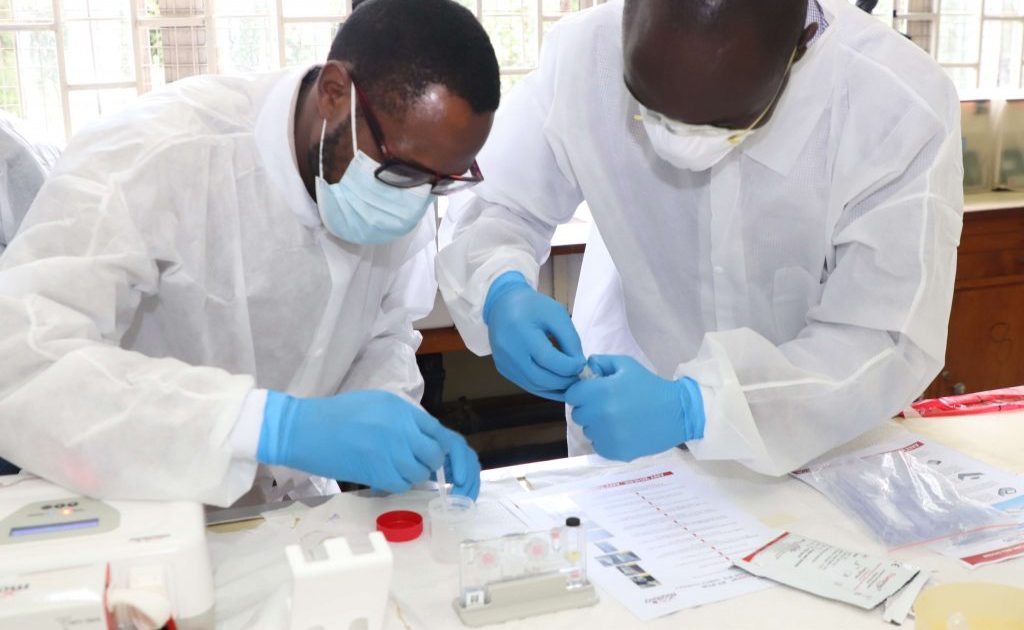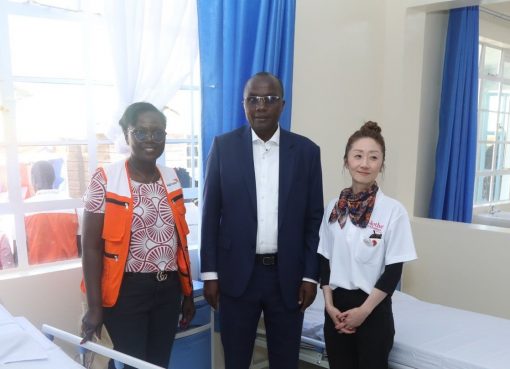The World Health Organisation (WHO) is calling for urgent action to address worldwide disruptions in tuberculosis responses, putting millions of patients’ lives at risk.
Ahead of World Tuberculosis (TB) Day, marked on March 24, WHO has called for investment of resources to protect and maintain tuberculosis (TB) care and support services for people in need across regions and countries.
TB remains the world’s deadliest infectious disease, responsible for the deaths of over 1 million people annually, bringing devastating impacts on families and communities.
Global efforts to combat TB have saved an estimated 79 million lives since 2000; however, the drastic and abrupt cuts in global health funding happening now are threatening to reverse these gains.
According to the WHO, rising drug resistance, especially across Europe and the ongoing conflicts across the Middle East, Africa and Eastern Europe are further exacerbating the situation for the most vulnerable.
Under the theme Yes! We Can End TB: Commit, Invest, Deliver, the World Tuberculosis Day 2025 campaign highlights a rallying cry for urgency, accountability and hope.
WHO Director-General, Dr. Tedros Adhanom Ghebreyesus, said that the huge gains the world has made against TB over the past 20 years are now at risk as cuts to funding start to disrupt access to services for prevention, screening, and treatment for people with TB.
“We cannot give up on the concrete commitments that world leaders made at the UN General Assembly just 18 months ago to accelerate work to end TB. WHO is committed to working with all donors, partners and affected countries to mitigate the impact of funding cuts and find innovative solutions,” Tedros said.
Early reports to WHO reveal that severe disruptions in the TB response have been seen across several of the highest-burden countries following the funding cuts.
Countries in the WHO African Region have experienced the greatest impact, followed by countries in the WHO Southeast Asian and Western Pacific Regions.
Twenty-seven countries are facing crippling breakdowns in their TB response, with devastating consequences from human resource, diagnostic services, data and surveillance collapses and also case funding.
Nine countries report failing TB drug procurement and supply chains, jeopardising treatment continuity and patient outcomes.
The 2025 funding cuts further exacerbate an already existing underfunding for global TB response.
In 2023, only 26 per cent of the USD 22 billion annually needed for TB prevention and care was available, leaving a massive shortfall.
In response to the urgent challenges threatening TB services worldwide, WHO’s Director-General and Civil Society Task Force on Tuberculosis have issued a decisive statement demanding immediate, coordinated efforts from governments, global health leaders, donors, and policymakers to prevent further disruptions.
The statement outlines five critical priorities, namely addressing TB service disruptions urgently, ensuring responses match the crisis’s scale, securing sustainable domestic funding, guaranteeing uninterrupted and equitable access to TB prevention and care, and safeguarding essential TB services, including access to life-saving drugs, diagnostics, treatment and social protections, alongside cross-sector collaboration, among others.
“This urgent call is timely and underscores the necessity of swift, decisive action to sustain global TB progress and prevent setbacks that could cost lives,” said Director of WHO’s Global Programme on TB and Lung Health, Dr. Tereza Kasaeva.
Dr. Kasaeva added that investing in ending TB is not only a moral imperative but also an economic necessity and that every dollar spent on prevention and treatment yields an estimated USD 43 in economic returns.
On World TB Day, WHO calls on everyone—individuals, communities, societies, donors and governments—to do their part to end TB.
Kenya faces a significant TB burden, estimated to have 133,000 new cases annually, with a high prevalence-to-notification ratio, meaning many cases go undetected and untreated.
Around 35,000 people with TB are also HIV-infected, and children account for nearly 8 percent of all cases.
By Wangari Ndirangu





